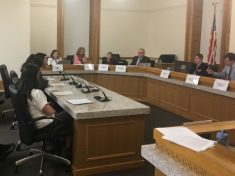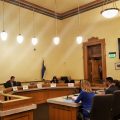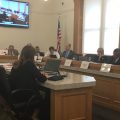
This post was written by Aubrey Hill, a former member of our team.
This year marked my 11th Colorado legislative session. By now, most people close to me know that my schedule is erratic at best between January and May. My social conversations are severely limited to updates on activity surrounding bills I’m working on. Fortunately, with the close of the session, I can rediscover my social skills and also take stock of what happened over the previous four months. Looking back, this session was heavy on health equity--in ways that were beneficial and ways that were not.
First, I want to celebrate some progress. The need for affordable housing solutions has become increasingly urgent over the last several years, especially because of its substantial impact on a person’s health. This year, we finally saw some action, with nearly a dozen bills attempting to mitigate some of the housing challenges faced by those who largely have been excluded from our state’s economic prosperity. For example, many Coloradans have been forced to live in substandard housing that had mold or rats because it was all they could afford and they couldn’t risk retaliation from their landlords by seeking restitution. Housing bills this legislative session increased legal protections for renters and mobile homeowners (HB 1170, HB 1106, HB 1118, HB 1309) and committed funding to create more affordable housing (HB 1245).
Colorado also improved health equity in other ways. One bill (HB 1129) bans the harmful practice of conversion therapy for minors, which will lead to higher-quality mental health care for LGBTQ+ youth. Through HB 1025, Colorado also banned private employers from asking about criminal history on hiring applications (also known as ban the box), which will increase employment opportunities for individuals who are reintegrating into society after serving time. And, we removed cost barriers to school lunch (HB 1171) so that nutritious meals are available to all children from kindergarten to 12th grade, regardless of ability to pay. These, and several other bills, are important steps forward in changing the shortcomings of Colorado’s systems and policies to ensure that a healthy life is accessible to all.
However, it’s not all good news. Immigration policy is inherently health policy, and we saw mixed results and continued controversy on these issues this session. The driver’s license program for immigrants continues to improve (SB 139), which will translate into improvements in their ability to access health care appointments and grocery stores. However, Colorado failed to make big moves forward in addressing the urgent issue of immigrant safety. Although a bill (Virginia’s Law) to limit ICE activities in hospitals, schools, and other community institutions was being developed, there was disagreement between legislators and the governor, and it was not given its day in the legislature. A scaled down version of bill (HB 1124) passed to ensure the legal rights and safety of immigrants in jail and probation settings.
In one of the biggest disappointments of the legislative session, SB 188, which would have set up an insurance program to cover Colorado workers when they need family or medical leave, was negotiated down to a taskforce and study process. Paid leave is a clear health and health equity issue, as jobs that don’t offer it are disproportionately low wage and held by women of color. While we appreciate the thoughtfulness in the approach that the taskforce intends to take--that of collecting information and making decisions about the program’s design with the right people at the table--we are frustrated at the missed opportunity for much greater progress toward health equity.
Even with only these few examples, it’s clear we’ve made an impact on health equity this session. I look forward to the opportunity to work alongside our members and partners to build upon that progress in 2020. But first, a quick nap to recover from a marathon legislative session!




